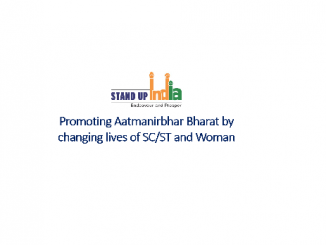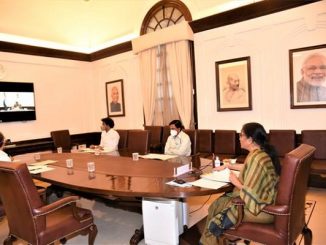
Dec 9: Department of Economic Affairs ( DEA), Ministry of Finance today hosted a learning session “Accelerating Responsible Digital Payments: Unlocking the Role of Fintech in Last Mile Service Delivery” with leaders from States and Union Territories across India. This Peer Exchange is a result of the tremendous success and opportunities highlighted during COVID-19 and is co-organized with the UN-based Better Than Cash Alliance. United Nations, the Better Than Cash Alliance is a partnership of over 75 governments, companies and international organizations committed to accelerate the transition from cash to digital payments to advance the Sustainable Development Goals.
Various Ministries and agencies made presentations on Open APIs, Smart City Cards, Blockchain use cases, Account Aggregator Eco system etc. State Government presented case studies on use cases.
During the COVID-19 relief efforts, nearly Rs 68,000 crore of cash was provided as direct benefits transfers directly into the bank accounts of the most vulnerable. The Digital Payment Infrastructure established by Government of India including Jandhan accounts, Aadhaar and Mobile phone (JAM) was put to excellent use during the pandemic. The Government of India has taken several initiatives to foster innovation and adoption of technology to bring in greater inclusive growth. Globally, India is being viewed as a model in implementing initiatives where the barrier to technology is at its lowest ever.
DEA is keen to ensure that by leveraging the tremendous digital public infrastructure led by various Ministries under the leadership of the Honorable Prime Minister’s Digital India vision, States and Union Territories can play a pivotal role to unlock the network effect of digitization that ultimately benefits citizens and brings economic and social progress to all.
“Fintech has significantly permeated the payments landscape and these firms can be game-changing partners for Central Ministries, State Governments and even large Local Governments for service delivery at the last mile, especially for women and micro-enterprises. Government of India is keen to promote public service use cases of technologies like Blockchain, Machine Learning and Open APIs by all three levels of Government to enable delivery of Financial and other Services,” said Shri. K. Rajaraman, Additional Secretary in the Ministry of Finance and a lead member of India’s Steering Committee on Fintech. An Inter-Ministerial Steering Committee on FinTech has been set up by Department of Economic Affairs under the Chairmanship of Secretary, Economic Affairs.
Based on the report of the Steering Committee, DEA has been driving fintech related interventions while also promoting usage of new age technologies by both public sector and private sector entities. The webinar brought together leaders of Central and State Governments to deliberate on the opportunities and the role of fintech in enabling digitization in sectors of national importance – land, agriculture, financial inclusion among others. State governments of Maharashtra, Karnataka, Odisha, and Himachal Pradesh presented learning from successful fintech partnerships. Some States have announced FinTech Policies, while some have announced Blockchain and AI Policies.
“Low connectivity, low access to devices, and low literacy and financial capabilities are the lived realities of many Indians at the peripheries of Digital India. We applaud this important push by the Government to form new alliances and partnerships to deliver on the promises of Digital India to all,” said Keyzom, Asia-Pacific lead, Better Than Cash Alliance.
India became a member of the Better Than Cash Alliance in 2015 to digitize payments to achieve financial inclusion and to share success stories from Pradhan Mantri Jan Dhan Yojana, the world’s largest financial inclusion program. Alliance is working with several state governments towards the goal of building knowledge and programs where people, governments, and businesses can make and receive digital payments.
Disclaimer: We donot claim that the images used as part of the news published are always owned by us. From time to time, we use images sourced as part of news or any related images or representations. Kindly take a look at our image usage policy on how we select the image that are used as part of the news.


